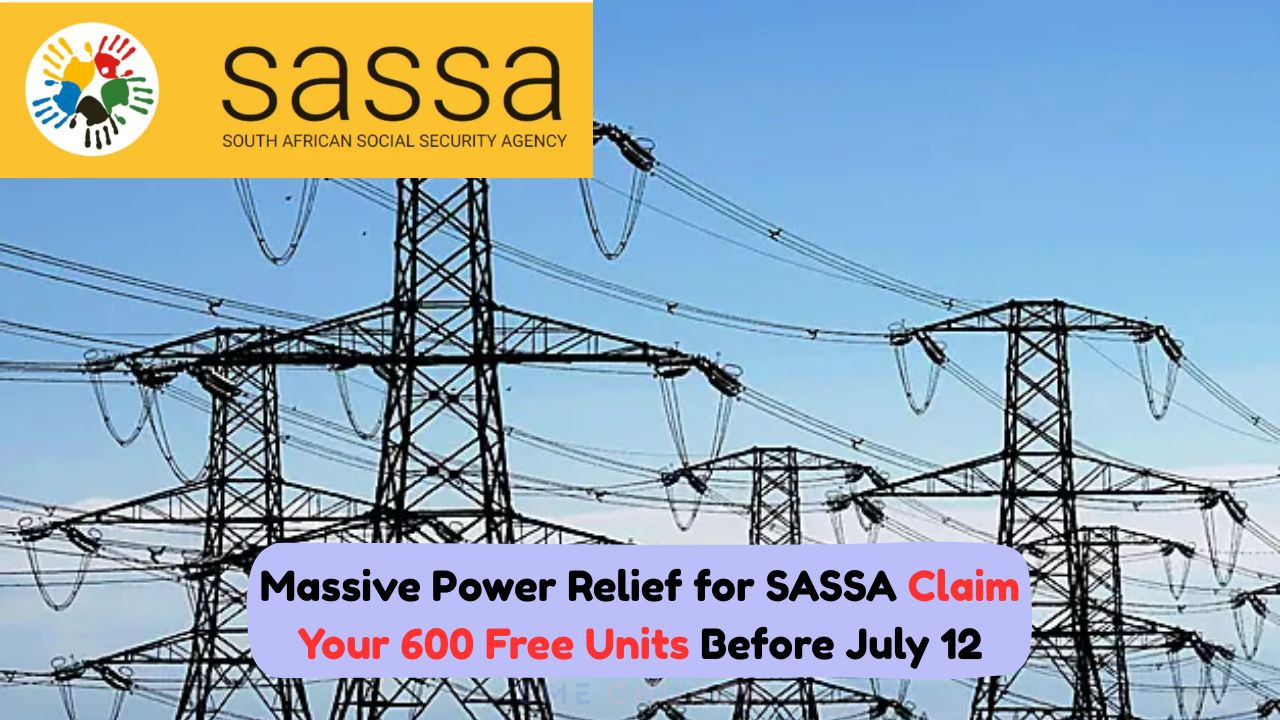SA Households Face Electricity Cut-Off: South African households are now under pressure to comply with a new mandate – the installation of smart meters by July 28. As the nation continues to grapple with energy challenges, this directive comes as a significant step towards modernizing the country’s electricity infrastructure. With Eskom’s looming power cuts, or ‘load shedding’, affecting daily life, the government aims to enhance energy efficiency and accountability through these smart devices. The installation of smart meters not only provides real-time data on electricity usage but also empowers consumers to monitor and manage their consumption effectively. This transition is not merely a technical upgrade; it is a pivotal move in South Africa’s journey towards sustainable energy management.
Understanding the Need for Smart Meters in South Africa
Smart meters are becoming a crucial part of South Africa’s energy landscape. These devices offer several benefits that traditional meters do not. The primary advantage is their ability to provide real-time data on electricity consumption. This transparency helps households to better understand their usage patterns and manage their energy bills effectively. Moreover, smart meters support load management during peak hours, reducing the risk of power cuts. For a country like South Africa, where load shedding is a frequent occurrence, such technology is vital. Additionally, smart meters facilitate remote monitoring and billing, eliminating the need for manual meter readings. This ensures accuracy in electricity billing and minimizes disputes between consumers and suppliers. Overall, the implementation of smart meters aligns with the national agenda of moving towards a more sustainable and accountable energy system.
- Real-time electricity consumption data
- Enhanced load management
- Remote monitoring capabilities
- Accurate billing systems
- Reduction in manual errors
- Improved energy efficiency
How Smart Meters Can Benefit South African Households
For South African households, the transition to smart meters presents a multitude of benefits. One of the most significant advantages is the potential for cost savings. By providing detailed insights into energy usage, smart meters enable consumers to identify peak usage times and adapt their consumption habits accordingly. This can lead to substantial savings on electricity bills. Moreover, smart meters contribute to environmental sustainability. By facilitating more efficient energy use and reducing wastage, they help lower the carbon footprint. Households can also benefit from improved customer service from utility providers, as smart meters provide accurate data that can swiftly resolve billing disputes. Furthermore, smart meters play a role in enhancing grid stability, which is crucial in a country often plagued by power outages.
- Cost savings: Reduced electricity bills through better usage management.
- Environmental impact: Lower carbon footprint due to efficient energy use.
- Customer service: Accurate billing and quick dispute resolution.
- Grid stability: Supports a more reliable energy grid.
- Empowerment through data-driven decision making
Steps to Ensure Smooth Installation of Smart Meters
Ensuring a smooth transition to smart meters requires careful planning and execution. First, households should contact their local electricity provider to schedule an installation. It is essential to verify the credentials of the technicians to ensure safety and compliance with regulations. Second, it’s vital to understand the functionalities of the smart meter. Many utility companies offer educational resources or sessions to guide consumers on how to interpret usage data effectively. Third, households should conduct regular checks to ensure the meter is functioning correctly and report any discrepancies to their provider. Lastly, maintaining open communication with utility companies helps address any issues promptly, ensuring the benefits of smart meters are fully realized.
- Contact local electricity provider for installation
- Verify technician credentials
- Understand smart meter functionalities
- Regular checks and reporting
- Maintain open communication with providers
Overcoming Challenges with Smart Meter Adoption
The adoption of smart meters is not without its challenges. One major concern is the initial cost of installation, which some households may find prohibitive. To address this, many municipalities are exploring subsidy schemes to alleviate the financial burden. Additionally, there are concerns about data privacy. Consumers need assurance that their usage data is secure and not misused. Utility companies must implement robust cybersecurity measures to protect consumer data. Another challenge is the resistance to change. Some households may be reluctant to adopt new technology due to a lack of understanding or fear of complexity. To overcome this, awareness campaigns and workshops can educate consumers about the benefits and ease of using smart meters.
- Initial installation costs
- Data privacy concerns
- Resistance to new technology
- Need for consumer education
- Technical malfunctions and troubleshooting
- Integration with existing infrastructure
- Ensuring equitable access for all communities
South African Municipalities and Smart Meter Implementation
| Municipality | Status | Challenges | Opportunities | Consumer Feedback | Future Plans | Support Initiatives |
|---|---|---|---|---|---|---|
| Cape Town | Active | Cost | Energy savings | Positive | Expand coverage | Subsidies |
| Johannesburg | Ongoing | Data security | Usage monitoring | Mixed | Community outreach | Education programs |
| Durban | Planned | Resistance | Grid stability | Neutral | Awareness campaigns | Workshops |
| Pretoria | Completed | Integration | Accurate billing | Positive | Maintenance | Technical support |
| Port Elizabeth | Pending | Funding | Environmental impact | Awaited | Implementation | Grants |
Impact of Smart Meters on Energy Management in South Africa
The introduction of smart meters is poised to revolutionize energy management in South Africa. By providing a clearer understanding of electricity usage, these devices enable more precise demand forecasting, which is critical for efficient energy distribution. Smart meters allow utility providers to implement demand response strategies effectively, shifting or reducing consumption during peak periods. This capability is crucial in stabilizing the national grid and reducing the frequency and impact of load shedding. Furthermore, the data collected from smart meters can inform policy decisions, helping to shape a more sustainable energy future for South Africa.
- Enhanced demand forecasting
- Informed policy decisions
- Improved grid stability
- Efficient energy distribution
- Support for sustainable practices
- Reduction in load shedding
Smart Meter Adoption: A Step Towards a Greener Future
- Facilitates energy conservation
- Promotes sustainable living
- Supports renewable energy integration
- Empowers consumers with data
- Reduces carbon emissions
Future Outlook for Smart Meter Integration in South Africa
As South Africa transitions to a more digital energy landscape, the future of smart meter integration looks promising. The government’s commitment to modernizing the energy sector aligns with global sustainability goals. Continued investment in technology and infrastructure will be essential to ensure the widespread adoption of smart meters. Over the coming years, we can expect to see advancements in smart grid technology, further enhancing the efficiency and reliability of electricity distribution. Collaboration between government, utility providers, and consumers will be crucial in overcoming existing challenges and ensuring that the benefits of smart meters are accessible to all South Africans. By embracing this technology, South Africa is taking significant strides towards a more sustainable and resilient energy future.
- Commitment to modernization
- Investment in infrastructure
- Advancements in smart grid technology
- Collaboration for overcoming challenges
- Accessibility for all communities
- Resilient energy future
FAQ Section
What is the deadline for installing smart meters in South Africa?
All households are required to install smart meters by July 28.
How do smart meters help in reducing electricity bills?
They provide real-time data on electricity usage, allowing consumers to adjust their habits and reduce costs.
Are there any financial aids available for smart meter installation?
Yes, some municipalities offer subsidies and grants to ease the financial burden of installation.
How secure is the data collected by smart meters?
Utility providers implement strict cybersecurity measures to protect consumer data.
What should I do if my smart meter malfunctions?
Contact your local electricity provider for support and troubleshooting.









